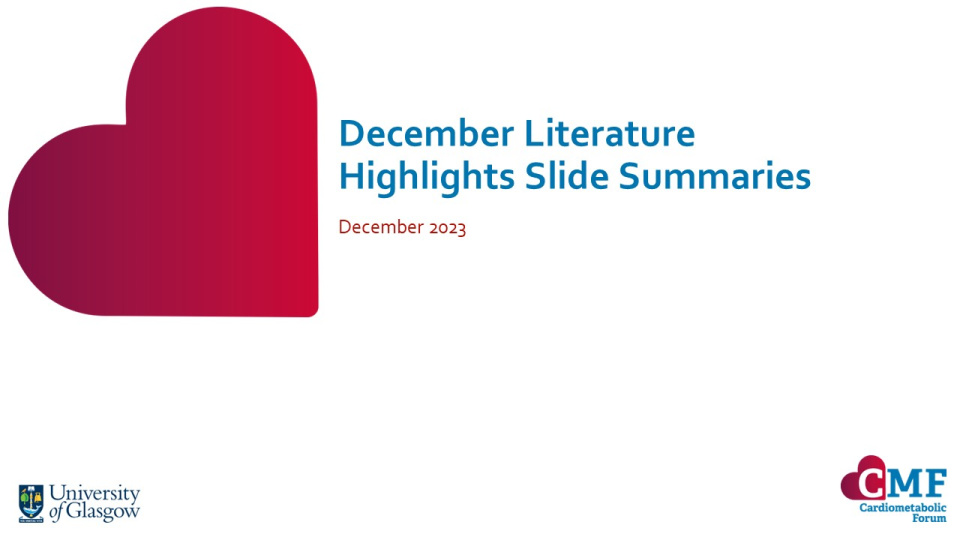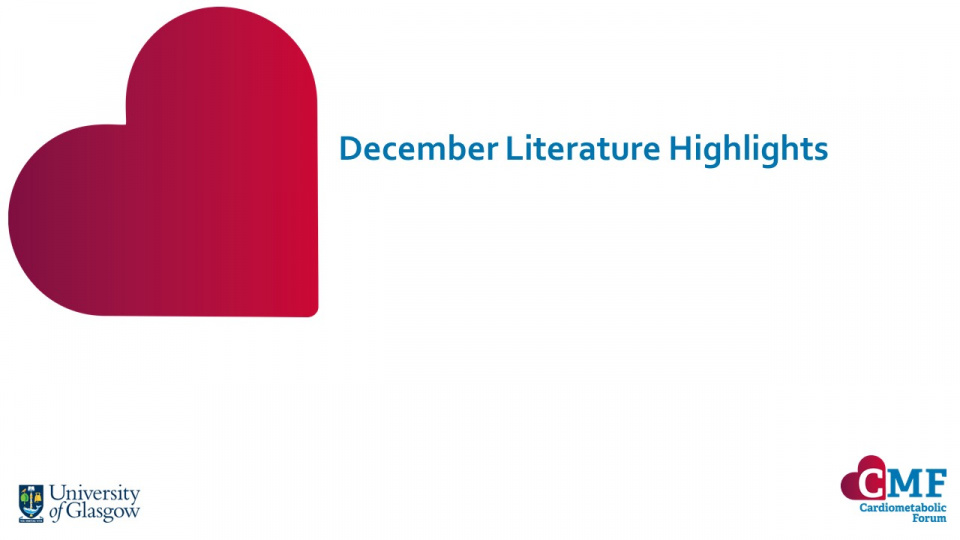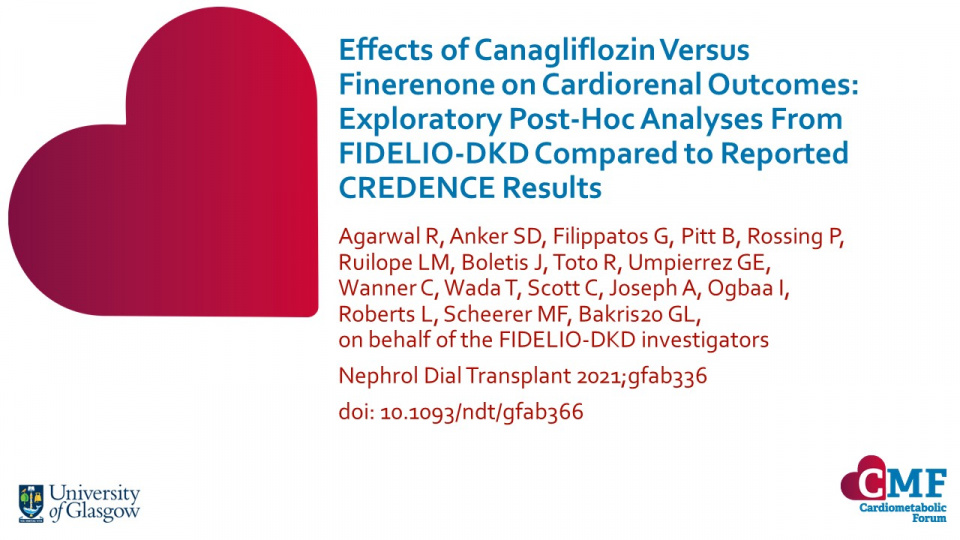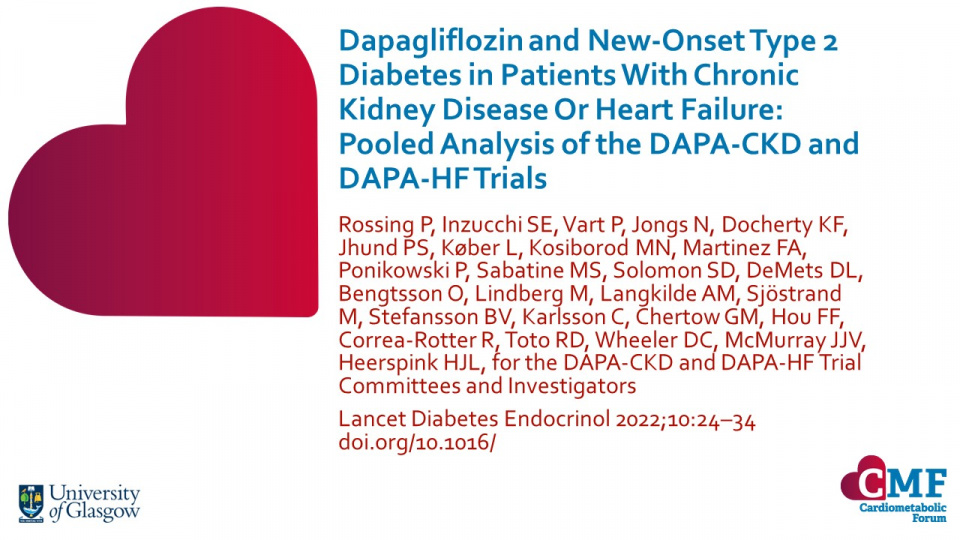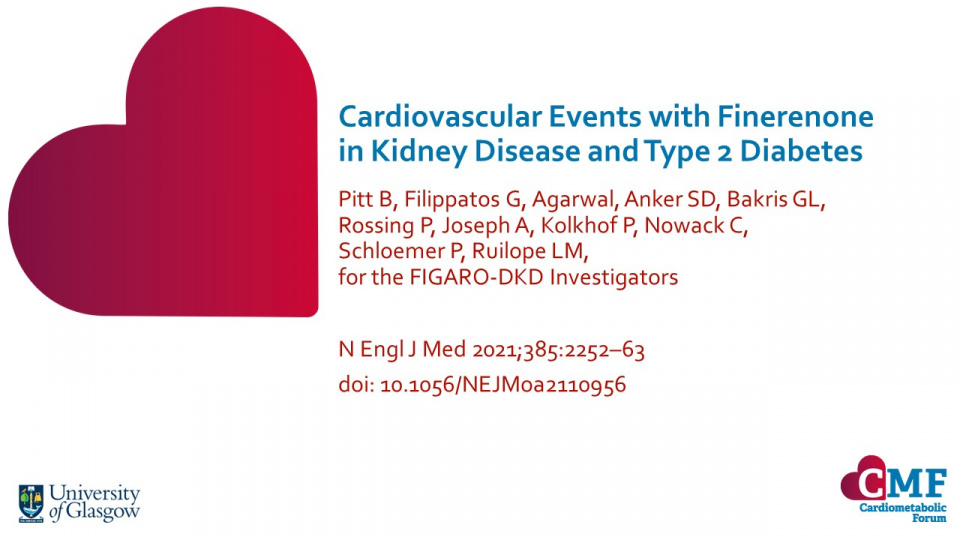Publications
Stay up to date with our literature reviews which are curated by experts to feature the most important publications released each month. Explore our publications for access to concise summary slides for your own use.
December Literature Highlights
Multiple sources (see slide deck for information)
Single slide summaries of all this month's selected publications.
Effects of Canagliflozin Versus Finerenone on Cardiorenal Outcomes: Exploratory Post-Hoc Analyses From FIDELIO-DKD Compared to Reported CREDENCE Results
Nephrol Dial Transplant 2021;gfab336 doi: 10.1093/ndt/gfab366
Finerenone and canagliflozin reduce cardiorenal risk in patients who are albuminuric. This exploratory post-hoc analyses by Agarwal et al. investigated how differences in trial design influenced observed treatment effects in the FIDELIO-DKD and CREDENCE studies.
Dapagliflozin and New-Onset Type 2 Diabetes in Patients With Chronic Kidney Disease Or Heart Failure: Pooled Analysis of the DAPA-CKD and DAPA-HF Trials
Lancet Diabetes Endocrinol 2022;10:24–34 doi.org/10.1016/
Chronic kidney disease and heart failure are insulin resistant states associated with high incidence rates of diabetes. Rossing et al. carried out a two Phase 3, randomised, double-blind, placebo-controlled trials assessed the effect of dapagliflozin on new-onset type 2 diabetes, in a pooled analysis of data from 6,608 individuals.
Cardiovascular Events with Finerenone in Kidney Disease and Type 2 Diabetes
N Engl J Med 2021;385:2252–63 doi: 10.1056/NEJMoa2110956
Finerenone has desirable effects on cardiorenal outcomes in patients with stage 3 or 4 chronic kidney disease (CKD), type 2 diabetes and severely elevated albuminuria. The outcomes of the use of finerenone are unclear in patients with type 2 diabetes and a wider range of CKD.

